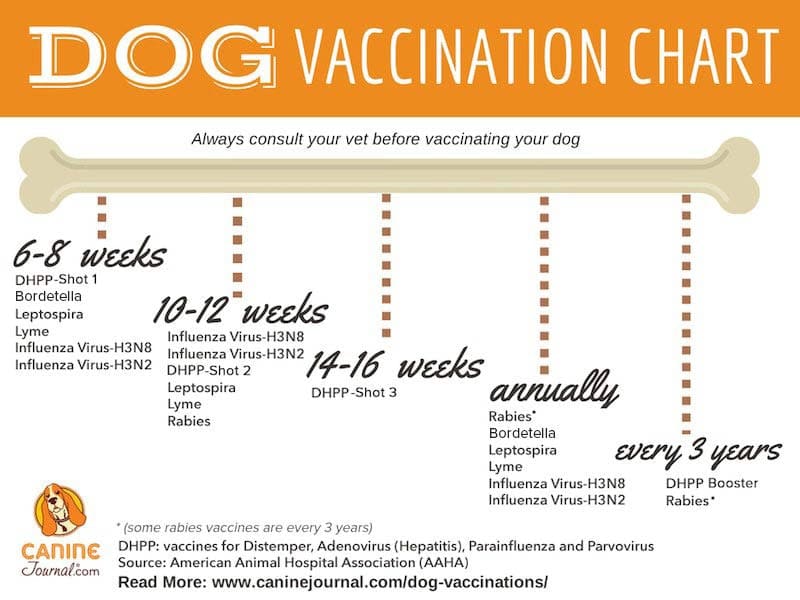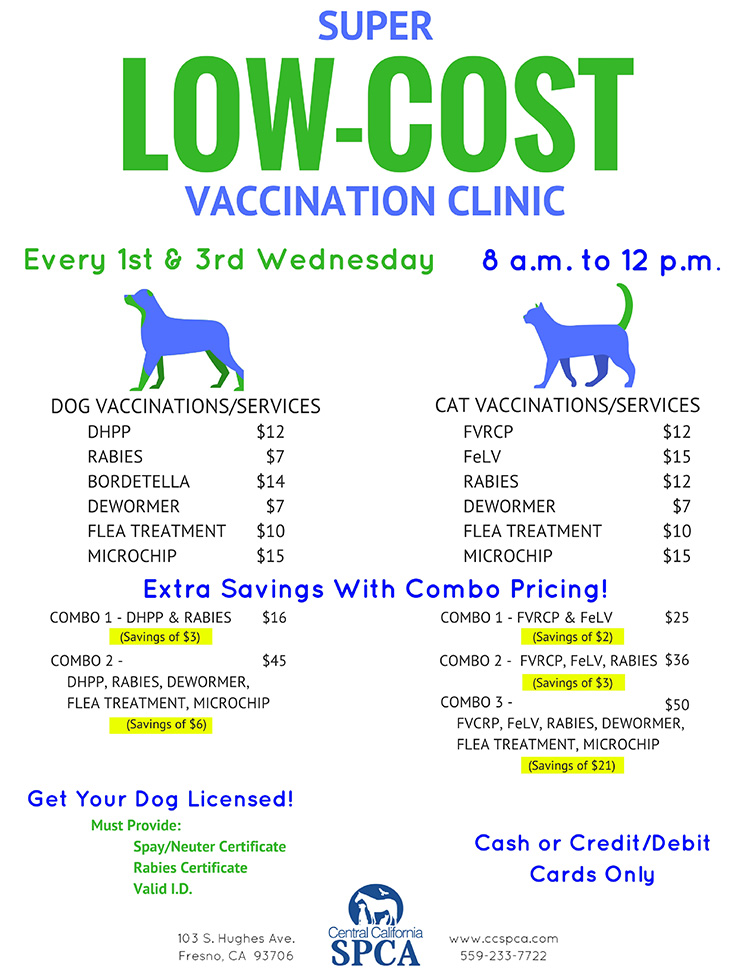Lifestyle vaccines while not required are strongly recommended depending on geography. Dogs can also experience soreness after their injection or develop localized swelling where the injection was given.
 Puppy Vaccination Schedule Chart Canada
Puppy Vaccination Schedule Chart Canada
All of the vaccines given to dogs fit into 2 categories.

Vaccine shots for dogs. Primary vaccination is essential in order to prevent the once common puppy diseases that caused high levels of fatality from returning. Rabies usually required by state or local law which dictates the age and intervals for your dog. If a lump from a vaccine lasts longer than 13 months it should be biopsied or removed and biopsied.
Vaccinations can help protect your dog against some potentially fatal diseases such as parvovirus canine distemper leptospirosis and infectious canine hepatitis. Programs in this field have contributed both to the health of dogs and to the public healthIn countries where routine rabies vaccination of dogs is practiced for example rabies in humans is reduced to a very rare event. Cats in particular can develop a vaccine.
Adenovirus Canine Hepatitis The Non-Core vaccines include. Puppies need a. Vaccines are a vital part of your dogs veterinary care routine but figuring out which ones they needand when they need themcan get confusing.
Like human vaccinemaker Novavaxs approach Zoetiss strategy delivers a shot of a modified form of the SARS-CoV-2 spike protein. Core vs Non-Core Vaccines. These vaccines all protect against dangerous viral diseases.
Noncore vaccines mandatory shots vs. As with human vaccines dog vaccinations are designed to prevent. Non-core vaccines are important but not needed for all dogs.
Rabies initial vaccine Leptospirosis. Most pet owners take their dogs to the vet for vaccinations and to get their yearly exam. Long-Term Injection-Site Reactions From Vaccines.
Vaccinating your dog also stops them from catching and spreading deadly diseases to other dogs. Core and non-core vaccines. Although some dogs leave the office and never have issues or problems with the vaccinations some dogs receive an injection and experience a variety of side effects such as.
Puppy and dog vaccinations Vaccinations protect pets from diseases that remain a high risk and can kill Puppies will need to be vaccinated against the killer infections from six to nine weeks of age They will then be protected against parvovirus distemper leptospirosis and adenovirus 1 and 2. DHP also called DAP stands for Distemper Hepatitis or Adenovirus-2 and Parvo and are usually combined. 11 rows At least 3 doses given between 6 and 16 weeks of age.
Recent data presented by the company show cats and dogs mounted a. Young dogs are most susceptible to rabies distemper parvovirus and hepatitis and immunized against these infections in two-week vaccination cycles during their. O establish whether boosters are necessary for your pet blood tests to measure the amount of antibodies antibody titers are sometimes recommended.
Core vaccines help prevent animals from contracting life-threatening diseases that have a global distribution. Those recommended by your vet it can get even more complicated. Puppy Shots How they work.
Vaccines help prevent many illnesses that affect pets. Dogs will occasionally develop hair loss or discoloration at the site of a vaccine usually rabies. Currently there are geographically defined core vaccines and individually chosen non-core vaccine.
Core vaccines should normally be administered to every dog. Rabies Vaccine Side Effects The rabies vaccine for dogs has been around a long time and has a very low rate of side effects. Core puppy shots start at six to eight weeks old and protect and prevent new pups from high-risk prevalent or contagious diseases.
And when you add in core vs. 7 rows The core vaccines include the DHLPP distemper hepatitis leptospirosis parvo and. 2 rows Noncore Vaccines.
Vaccinating your pet has long been considered one of the easiest ways to help him live a long healthy life. 2 doses 3-4 weeks apart. Vaccination of dogs is the practice of animal vaccination applied to dogs.
Not only are there different vaccines for different diseases there are different types and combinations of vaccines. However recent research indicates that not all vaccines require yearly boosters. Core vaccines according to the World Small Animal Veterinary Association WSAVA are those which every dog or cat must receive no matter their age environment habits breed or circumstance.
Core vaccines are the ones most vets recommend your dog should have as a puppy. However some dogs especially Chihuahuas can temporarily lose their hair over the vaccine site.
